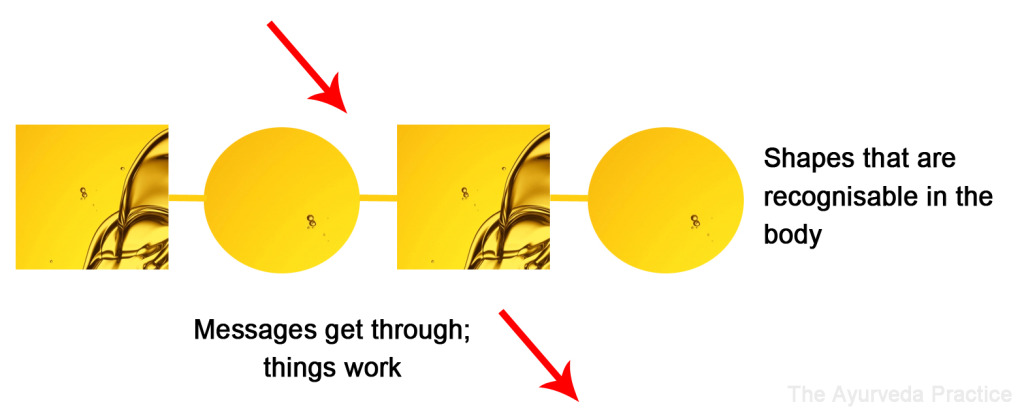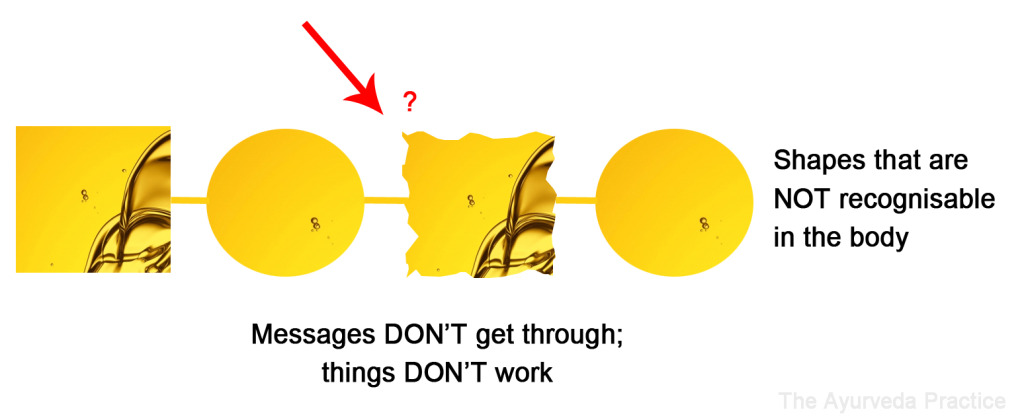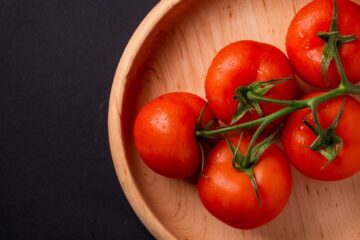Oils and fats are a much misunderstood area of our modern diet. We moved away from cooking with saturated fats (e.g. meat fats, dairy fats) as we were told they were causing us too many problems. We jumped straight from the sizzling frying pan into the fire…
Types of oils and fats
Oils and fats are members of the same family, the only difference is that, at room temperature, fats are solid and oils are liquid. Coconut oil is liquid (oil) in its native climate but solid (fat) here in the UK. There are two categories of natural fats and oils to be aware of: 1. saturated and mono-unsaturated and 2. poly-unsaturated. With modern manufacturing methods, we also now have some unnatural forms of fats called hydrogenated fats and trans fats.
| Saturated or mono-unsaturated fats/oils | Poly-unsaturated oils | Hydrogenated / Trans fats | |
| Processing | Natural, very little processing | Natural, some processing | Unnatural, extensive processing |
| Naturally occurring in… | Animal tallow (fat from meat, e.g. goose fat) Dairy fats (butter, ghee) Coconut Extra-virgin olive oil, extra virgin avocado oil |
Seeds and nut oils e.g.sunflower, sesame, corn, soya, rapeseed, hemp, flax, walnut, other olive oils | Nothing! These don’t occur naturally, they are artificially produced. |
| Properties | Stable, heavy | Unstable, light | Stable, heavy (but with different structures to natural saturated fats) |
| Visualise… |  Dense, heavy, square |
 Light, circle |
Dense, heavy, square with jagged edge |
| Best for… | cooking | adding to food at lower temperatures | avoiding completely |
Which fats and oils are good for us?
All natural fats are good for us in moderation.
Saturated fats and mono-unsaturated oils are best for cooking
Mono-unsaturated oils (extra virgin olive oil, extra virgin avocado oil) have many health benefits and are fairly stable to cook with at light to medium-high heats such as sauteing and roasting to 170°C. Choose to cook with extra virgin olive or avocado oils when we aren’t going to very high heat.
Saturated fats are heat- and light-stable, these are the best fats to cook with to high heat such as frying or tempering spices. They can be heated to high temperatures and they don’t change their form or shape or disintegrate into harmful substances.
We became very scared of cooking with these fats because as a society, we used too much of them and caused ourselves health problems such as obesity. With the levels of meat and dairy in most of our diets, we generally get plenty of these so we don’t need to add them into our diets beyond cooking with them.
Poly-unsaturated fats are best for adding to food at low temperatures
 As people moved away from saturated fats, they started cooking with vegetable oils (unsaturated fats). Vegetable oils are very beneficial to the body if used unprocessed and cold; helping to reduce blood pressure, develop and promote a healthy brain and prevent arthritis. Some of them are essential in our diets (i.e. our bodies can not make them).
As people moved away from saturated fats, they started cooking with vegetable oils (unsaturated fats). Vegetable oils are very beneficial to the body if used unprocessed and cold; helping to reduce blood pressure, develop and promote a healthy brain and prevent arthritis. Some of them are essential in our diets (i.e. our bodies can not make them).

If we eat saturated fats and untreated unsaturated oils, the body recognises their shapes and sizes, and uses them as building blocks for cells in our bodies.
If we cook with these oils, however, we are exposing them to high levels of heat. They then form free radicals – toxic, aging molecules. These toxic chemicals break down essential structures in the body (it is to combat these that we take anti-oxidants such as vitamin C).
Pour these lovely vegetable oils on your meals and use them for dressings but don’t cook with them!
A note on which oils to buy:
To make these unsaturated vegetable oils easier to extract and able to sit on supermarket shelves in clear plastic bottles, manufacturers use intense treatment processes, including heat, to treat these oils. This can produce free radicals and also hydrogenated or trans fats (see below). Therefore only buy virgin, cold pressed oils which are in dark bottles (protection from light). Don’t buy standard vegetable oils you find in plastic bottles on supermarket shelves.
Hydrogenated and trans fats are best for … avoiding completely
![]() Saturated fats such as butter are versatile and stable but expensive. To create cheaper fats, companies started making artificial saturated fats by processing unsaturated fats (vegetable and nut oils). These processes form hydrogenated fats and trans fats. These fats look and feel quite similar to natural fats but with some important differences in shape. The body thinks they are same as the natural fats and uses them for the same jobs. Given that they are actually different, they don’t work and our systems, such as cell messaging, fail to work properly. This has large knock-on effects on the body.
Saturated fats such as butter are versatile and stable but expensive. To create cheaper fats, companies started making artificial saturated fats by processing unsaturated fats (vegetable and nut oils). These processes form hydrogenated fats and trans fats. These fats look and feel quite similar to natural fats but with some important differences in shape. The body thinks they are same as the natural fats and uses them for the same jobs. Given that they are actually different, they don’t work and our systems, such as cell messaging, fail to work properly. This has large knock-on effects on the body.

You can imagine trans fats have strange jagged edges. The body thinks it recognises them and uses them in places where similar shaped fats go. They have jagged edges however and so although they have been placed in the body, they don’t work properly. They effectively stop that function of the body.
Do not eat anything with hydrogenated or trans fats in them – this will include many processed foods and commercially baked goods such as biscuits and cakes. Margarine can also contain these.
In summary
COOK WITH
- Mono-unsaturated fats for low to medium-high heat cooking, e.g. minimal frying followed by addition of watery ingredients which cools down the temperature (for example, in a pasta sauce). These are extra virgin olive oil and extra virgin avocado oil. Make sure these oils are kept in dark bottles, away from sunlight. Be very careful; don’t expose the oil to too high or prolonged heat. Examples:
- Saturated fats for high heat cooking e.g. frying, tempering spices. These are very heat-stable and do not become toxic on heating. These include ghee (clarified butter), butter, coconut oil and animal fats such as duck and goose fat. The best amongst these is ghee as it contains beneficial nutrients (vitamin A, D, E & K, linoleic acid) and is the only fat which stimulates the digestive fire (capability). Use saturated fats in moderation and never deep-fry.
POUR COLD ONTO FOOD
- Unsaturated oils such as flax, hemp, sesame, almond and walnut all have fabulous health benefits.
AVOID
- Heat processed oils, hydrogenated and trans fats.
Author: Kate Siraj, Ayurvedic Practitioner, BSc Ayurveda, MChem (Oxon), MAPA.
© The Ayurveda Practice
Further information:
- Mann, J and Truswell, S (ed) (2002): Essentials of Human Nutrition. Oxford: Oxford University Press, 2nd edition.
- Fox, BA and Cameron, AG (1995). Food Science, Nutrition and Health. London: Edward Arnold. 6th edition.
- Erasmus, U (1993): Fats that heal, Fats that kill. Canada: Alive Books




8 Comments
Vannessa · March 6, 2013 at 00:09
Thanks Kate that is very helpful. I have just bought some ghee and was wondering how to use it and when. Now I know.
Awesome article!
Watch the wind – it’s a tricky little fellow | Living Ayurveda · September 10, 2014 at 14:05
[…] Oils are superb at reducing vata as not only are they oily but also heavy and generally warming. Cook with ghee, coconut and virgin olive oils and add other virgin oils (sesame, hemp, flax for example) to your food after cooking. Oil […]
Spelt courgette cake - The Ayurveda Practice · February 14, 2015 at 15:12
[…] Wonderfully moist, this spelt courgette cake is as healthy as a cake can be. It’s dairy and wheat free too. It is important to use good oils in cooking – see article here. […]
Coconut oil spelt pancakes - The Ayurveda Practice · February 17, 2015 at 13:17
[…] The type of oil you use to cook with is very important. Most vegetable oils (apart from olive oil) are very heat unstable and cooking with them creates free radicals (aging and toxic chemicals for the body). Only cook with coconut oil, ghee and olive oil (not to high temperatures). […]
Pulses – the best kept protein secret - · July 8, 2015 at 12:32
[…] lentils and chickpeas Use ghee, coconut oil or olive oil to cook this with (here’s why). Don’t add the chilli […]
Pantry essentials - The Ayurveda Practice · January 27, 2016 at 14:50
[…] THAN: bad oils. Cook with coconut oil, ghee or virgin olive oil (olive oil only if not heating too high or for too […]
Enjoy your Christmas roast with impunity this winter - The Ayurveda Practice · February 26, 2019 at 08:53
[…] cook with plenty of oils such as ghee, coconut oil and virgin olive oil. Drizzle over unrefined oils such as flax, sesame […]
Menopause – important life transition not an illness - The Ayurveda Practice · October 6, 2022 at 15:19
[…] fats, it is important to have enough of them in your diet and make sure they are healthy fats (see here). Menopause particularly is not a time to reduce fats in your diet. Also important are lentils, […]